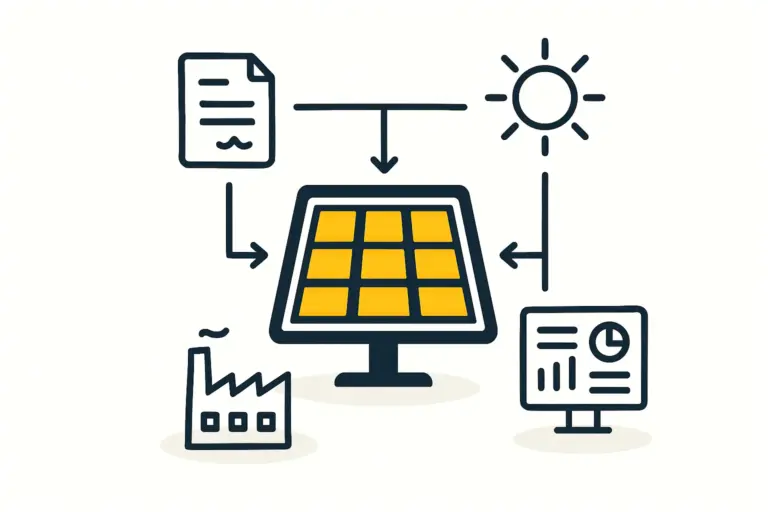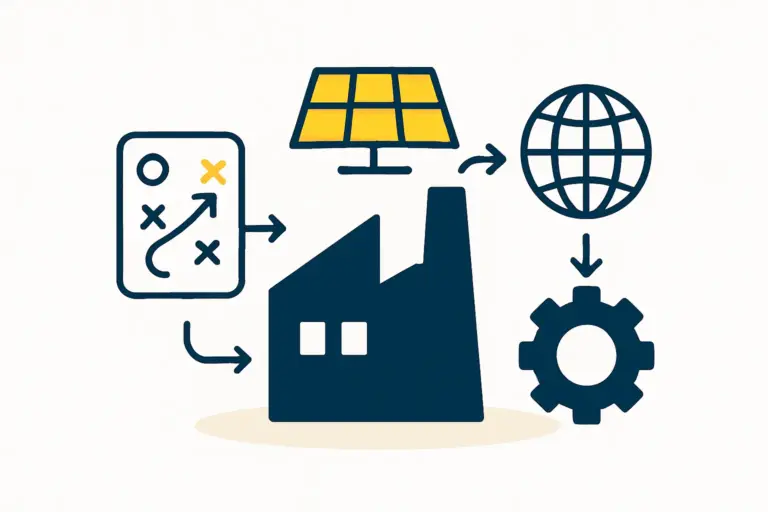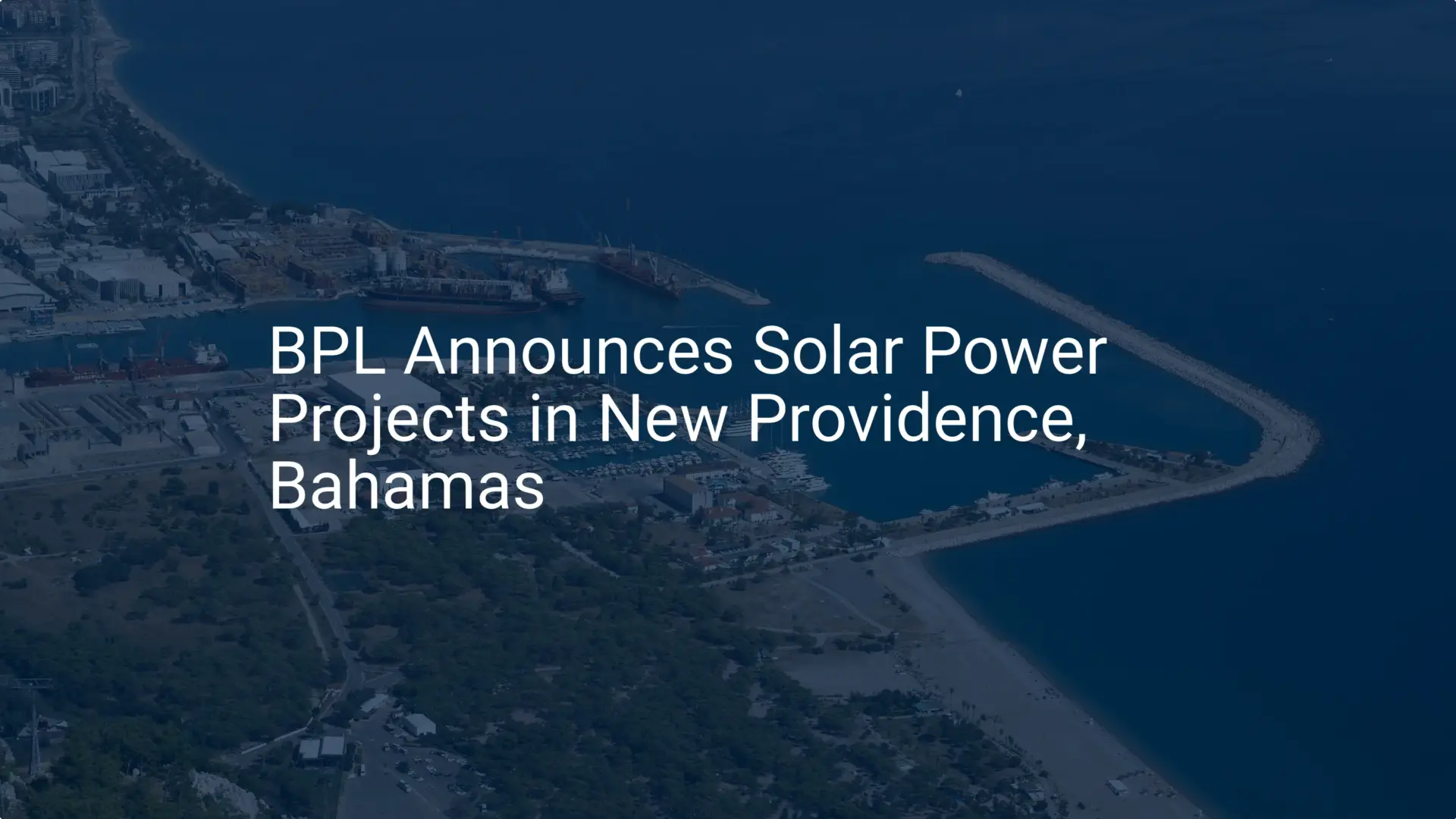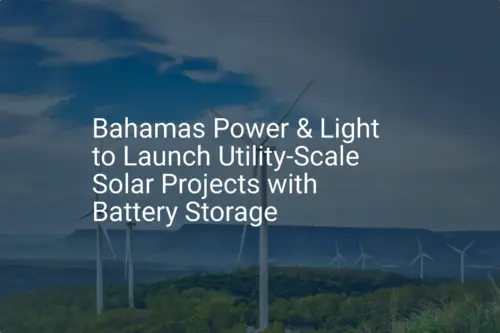Investing in a new industrial sector demands a clear understanding of its market, technology, and financial landscape. For entrepreneurs considering solar module manufacturing in The Bahamas, government policy—including key tax benefits and incentives—is often the deciding factor that turns a viable idea into a profitable reality.
The Bahamas is actively positioning itself as a strategic destination for renewable energy investment, backing this vision with a framework of concrete incentives. This guide provides a comprehensive overview of the government support, tax benefits, and funding opportunities available to solar manufacturers in The Bahamas, offering the clarity needed to build a solid business case and financial model for your venture.
Table of Contents
The National Vision: A 30% Renewable Energy Goal by 2033
The Bahamas’ renewable energy strategy is built on an ambitious national goal: to generate at least 30% of its energy from renewable sources by 2033. Central to the country’s energy policy, this target signals a long-term government commitment to decarbonization and energy independence, creating a stable and predictable environment for investors.
For a solar module manufacturer, this national objective is more than a statistic—it is a guarantee of future domestic demand. The government’s drive to meet this goal underpins the financial and regulatory incentives designed to attract the very companies that can help achieve it.

Financial Incentives for Solar Manufacturers: A Detailed Breakdown
To encourage investment in the local solar industry, the Bahamian government offers several financial incentives designed to reduce initial capital expenditure and improve the long-term profitability of manufacturing operations.
Tax Credits, Rebates, and Proposed Benefits
While the specifics are being finalized in the draft National Energy Policy 2025–2030, the government’s direction is clear. The policy proposes a range of tax incentives for businesses that invest in cleaner technologies. For manufacturers, these are expected to include:
- Tax Credits and Rebates: Financial credits that can be used to offset tax liabilities, directly improving cash flow.
- Tax Holidays: A potential exemption period from certain business taxes, allowing new factories to establish a strong financial footing during their critical early years.
Their inclusion in the draft policy underscores the strong political will to make solar manufacturing financially attractive.
Customs Duty Exemptions on Equipment and Materials
One of the most significant and immediate benefits for solar manufacturers is the exemption from customs duties on imported machinery, equipment, and raw materials. Building a solar module production line requires specialized equipment, and importation costs can be substantial.
The government’s exemptions typically cover:
- Production machinery, such as laminators, cell stringers, and testers.
- Essential raw materials for manufacturing solar panels.
- Spare parts and other equipment necessary for factory operations.
Claiming these exemptions requires a formal application through the relevant government ministries. Businesses must provide proper documentation detailing the nature and purpose of all imported goods.

Accessing Government Grants and Direct Funding
The Bahamas offers qualified ventures direct access to capital through established funding programs for renewable energy.
- The Bahamas Development Bank (BDB) Facility: A $30 million fund, managed by the BDB, was created specifically to help finance renewable energy systems. This facility can provide crucial capital for entrepreneurs looking to establish or expand their operations.
- Inter-American Development Bank (IDB) Financing: The IDB has approved up to $170 million in financing for solar energy projects across The Bahamas. While not all of this is for manufacturing, it highlights the availability of large-scale international funding and the country’s credibility as an investment destination.
Navigating the Legal and Regulatory Landscape
Financial incentives are most effective within a stable, modern legal framework. The Bahamas has taken decisive steps to update its energy regulations to support private investment and competition.
Understanding the Electricity Act, 2024
The new Electricity Act, 2024, is landmark legislation that modernizes the country’s energy sector. It creates a more transparent, efficient, and friendly regulatory environment for independent power producers and manufacturers. For investors, this act provides the legal certainty needed for long-term planning and operations.
The Role of URCA in a Fair Market
The Utilities Regulation and Competition Authority (URCA) is the independent regulator for the Bahamian energy sector. Its role is to ensure fair competition, oversee licensing, and approve tariffs. For a new manufacturer, URCA serves as the key regulatory body, providing clear rules and a predictable operational environment.
How to Apply for Incentives: A Step-by-Step Guide
Navigating the application process for government incentives requires careful preparation. While requirements may vary by incentive, the general process involves several key stages:
- Business Plan Development: A comprehensive business plan is the first requirement. It must detail your proposed factory, production capacity, financial projections, and contribution to the local economy.
- Initial Government Consultation: Consult with the Ministry of Energy and Transport and other relevant agencies to present your project and clarify the specific requirements for incentives.
- Formal Application: Submit a formal application with all required documentation, which typically includes your business plan, financial statements, articles of incorporation, and a detailed list of equipment and materials for duty exemption.
- Due Diligence and Review: The government will conduct a due diligence process to verify the viability and eligibility of your project.
- Approval and Agreement: Upon approval, you will receive formal documentation outlining the incentives granted, such as a letter of approval for customs duty waivers or a financing agreement with the BDB.

Why Choose The Bahamas for Solar Manufacturing?
The Bahamas presents a compelling case for investment in solar module manufacturing. The government has created a supportive ecosystem built on a clear strategic vision, tangible financial incentives, and a modern regulatory framework.
Taken together, the 30% by 2033 target, duty exemptions, available funding, and the new Electricity Act create a powerful value proposition. For entrepreneurs ready to enter the clean energy space, The Bahamas offers not just an opportunity, but a strategic partnership for growth.
Ready to launch your solar manufacturing business in The Bahamas? Visit our free e-course for foundational knowledge or explore our services for expert support. For a comprehensive roadmap, our Premium Business Plan E-Course offers personalized guidance to get your venture off the ground. Let us help you build a successful solar venture.
Frequently Asked Questions (FAQ)
Q: What is the primary goal of The Bahamas’ National Energy Policy?
A: The main objective is to generate at least 30% of the nation’s energy from renewable sources by 2033, a goal that drives government support for the local solar industry.
Q: Are the tax incentives for solar manufacturers already in place?
A: Proposed tax incentives are in the final stages of approval under the draft National Energy Policy 2025–2030, signaling strong government commitment. Existing benefits, such as customs duty exemptions, are already available.
Q: What is the role of the Bahamas Development Bank (BDB) in the solar sector?
A: The BDB manages a $30 million fund to finance renewable energy projects, serving as a key source of capital for entrepreneurs in the solar sector, including manufacturing.
Q: Is the legal framework in The Bahamas stable for a long-term investment?
A: Yes. The new Electricity Act, 2024, modernizes the energy sector by establishing a stable and predictable regulatory environment that encourages private investment and protects new businesses.






